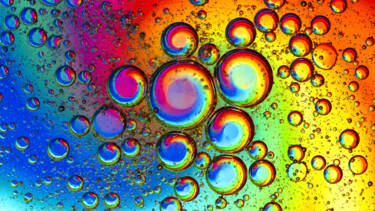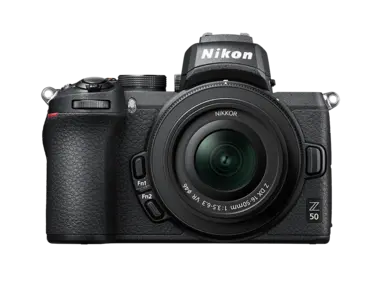Exploring abstract macro photography at home

Photographer Alberto Ghizzi Panizza on his lifelong love of macro photography and his tips on perfecting the shot
Macro photography has fascinated me for a lifetime. It enables us to explore worlds often invisible to us and clearly observe the small details that exist in everyday life which the naked eye cannot. It is one of the most fun photographic techniques.
Getting started
The beauty of this technique is that a good compact or bridge camera might be all you need to get started. Just check if it has a macro function and then confirm the correct distance with which to shoot to get the maximum magnification. If you own an APSC or a full-frame camera, everything will depend on the lens. Don’t be discouraged if you don’t own a macro lens, different lenses are also capable of good reproduction ratios. I often use optics like the AF-S DX NIKKOR 18-300mm f/3.5-5.6G ED VR to take good macro photographs.
Understanding maximum magnification
To get to grips with the maximum magnification you can obtain with your lenses, I recommend focusing in manual mode. Then move the focusing ring to the minimum allowed distance or the longest focal length, if using a zoom lens. At this point, looking inside the viewfinder, you can approach or move away from any subject to see it clearly and in focus. When you see the right distance through the viewfinder (or even using the live view) this will be the maximum reproduction ratio you can obtain with your optics.
For example, with the aforementioned AF-S DX NIKKOR 18-300mm f/3.5-5.6G ED VR, I will be able to stay at 0.45 meters from my subject with a focal length of 300mm to obtain reproduction ratios of 1: 3 or 0.32X. This is often more than enough to capture good macro photographs. Alternatively, if you have an FX body you can use it in DX mode for the same results as you would have with a real DX camera, at the expense of a megapixel reduction. But of course if you have a true macro lens, you should use it to obtain reproduction ratios of 1:1, called life-size, where our subject will occupy the same surface on the sensor that it occupies in reality.
Don't be afraid to have fun
For macro photography to be executed well, you generally need a good level of technical knowledge — but don’t let this put you off. Now is the perfect time to give it a try, experiment and have fun! Here are some scenarios you can try at home.
Alberto Ghizzi Panizza

Capturing droplets on a CD
I used a CD, but a DVD can also work well, with a nebulizer and a syringe to create droplets on its surface. To make it easier for myself, I secured the CD to the tripod with a clamp. To recreate my shot, the most important thing is to find the correct angle to create the rainbow effect. This can easily be achieved next to a window, rotating the CD or using an LED lamp, until the colours are at maximum intensity. Each time you spray the CD, different drops will form. If you particularly want to create round droplets then I recommend using a dry CD.


Everyday household objects can be deceiving
Wandering around the house I found objects such as screws and nails that could be interesting as macro subjects. While photographing them I asked myself what it would have been like to capture them all together, which is when I came up with the idea of creating miniature cities that deceives the observer at first glance.
Using a silver saucer as a base, I placed various screws and objects together to recreate a small imaginary city. Once the city was created — admittedly, this took several attempts because I kept hitting everything with my arm — it was all about good lighting.
To make the background more pleasant, which can be difficult at home, I used my notebook with a photo projected on the screen — a beautiful sunset.
After some experimentation, I tried to remove as much light as possible so that the silhouettes of the tiny structures projected against the background to create a realistic effect.



What else can you capture at home?
Another easy-to-photograph subject to create abstract and colourful images are the shapes that occur mixing oil and water. All you need is a transparent baking dish or simply a glass — which is what I used. My advice is to fill the glass, but not to the brim. Add a few drops of oil, mix with a teaspoon and you will see bubbles of different sizes eventually form. You can then add coloured backgrounds under the glass — I used a sheet with different shades. A magazine with coloured pages can also work well. Now we need to add light to our mix. I prefer to use an LED flashlight to rotate around the glass to emphasise shapes and colours — the best effects are obtained with the torch placed on the side. You can also use an external flash to freeze the liquid or very fast shutter speeds.


The possibilities are endless…
If you have time, the possibilities for abstract macros are endless. If you have a garden or a balcony with plants, you can photograph dry leaves, trying to capture the most interesting details. You can take it one step further and put the leaves in an oven dish and freeze them. One of my other favourite subjects is moss with its many buds. You can detach a piece of it, bring it into the house and, using your imagination, adorn it with drops and colored backgrounds.
Macro photography opens up new worlds, so what are you waiting for?

Discover more macro
Watch Alberto craft macro shots in his home
Get closer

Capture the extraordinary





